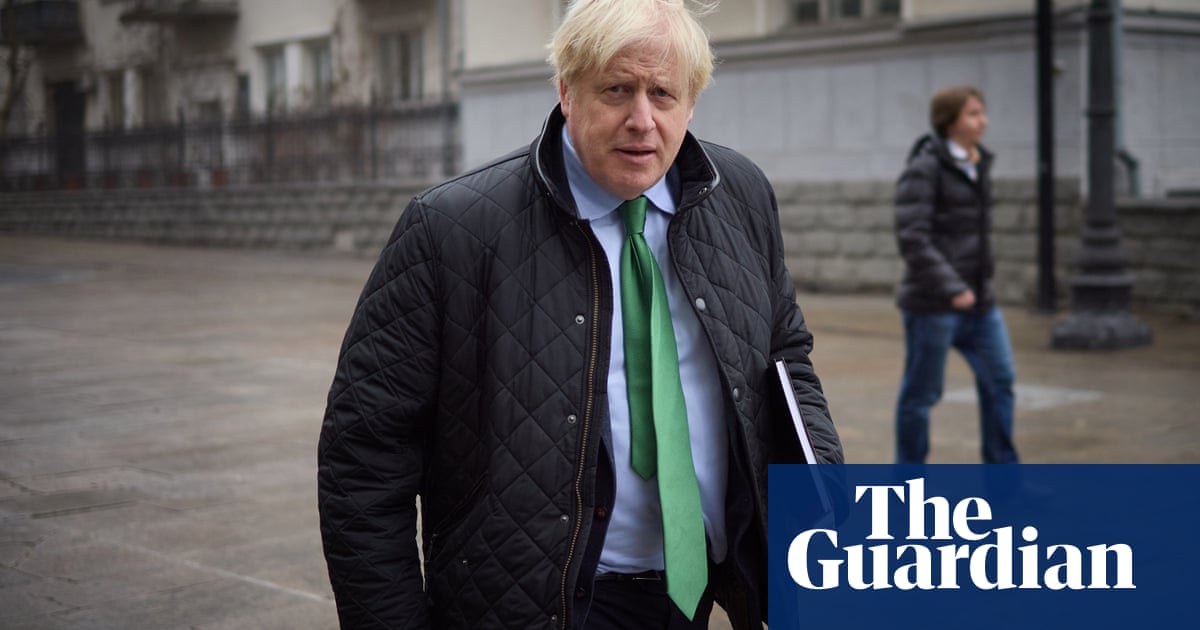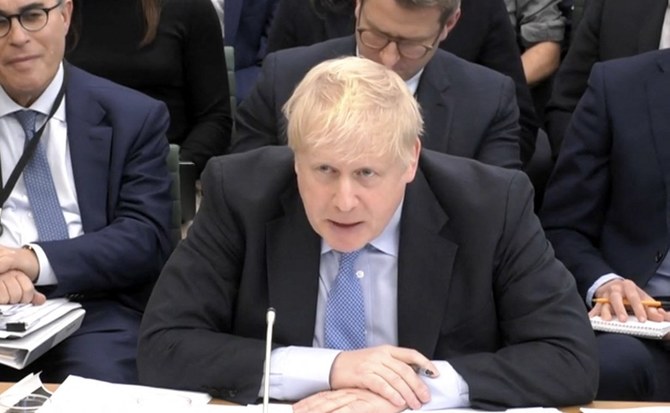
Boris Johnson entered Downing Street in July 2019 with a promise. The doubters, doomsters and gloomsters were going to get it wrong again: his leadership would make Brexit a success, re-igniting an economy stalled by the divisions over Europe.
Three years later, almost to the day, he prepares to leave with the country reeling from a political implosion of his own making, and an economy teetering on the brink of recession.
The cost of living is accelerating at the fastest annual rate in four decades, while families face the worst hit to real disposable income on record.
This wasn’t in the boosterish script. To be fair, neither was the biggest global health emergency in a century and war on European soil.
Britain’s economy suffered the sharpest fall in the G7 in 2020 as the coronavirus pandemic brought a sudden stop to economies around the world. When the country reopened after lockdown, Johnson pointed to the fastest growth rates in the G7.
However, that snapback is in part down to the scale of decline, as the UK – more dependent on consumer-facing services – entered lockdown later and for longer than some other nations, leading to the worst recession for 300 years.
In the midst of this succession of generational shocks, experts say deep structural faultlines have been exposed – all made more difficult to tackle by three problems: the legacy of austerity; Brexit; and Johnson’s lack of a coherent plan to deal with them all.
“This whole period is his legacy,” said Prof Jagjit Chadha, the director of the National Institute of Economic and Social Research, who believes without Johnson’s key role in the Vote Leave campaign six years ago, Brexit may not have happened. At least not in the same way.
“It has dominated our economic performance since 2016,” he said, referring to the year in which Britain voted to leave the EU.
What has followed is weak business investment – with the level of spending estimated to be about 20% below where it would have been without Brexit – as well as limited gains in living standards.
Without sufficient investment and productivity gains – and now with a lack of workers to fill record job vacancies – growing the economy without stoking inflation has become harder.
Prices are rising at a rate of 9.1%, and heading for 11% this October. The Bank of England is responding by hiking interest rates to the highest levels since the 2008 financial crisis, with more rises expected next month.
“We’ve had very slow growth,” said Chadha. “To be fair to Johnson, there has been a sequence of errors from successive governments. Brexit was thought to be the answer to our economic woes. In the way it has been managed, it has only exacerbated them.”
In the minutes and hours after the result of the referendum was announced, the pound plunged more than 10%, to the lowest level since 1985. Sterling has remained under pressure since, helping drive up inflation and erode living standards.
The government’s independent economic forecaster estimates that the long-run impact of Brexit will mean a 4% hit to the economy after 15 years.
As a process, rather than an event, the damage is still being felt. Disruption to trade and reams of red tape at the border led to a 40% drop in exports to the EU in January 2021, the first month after Brexit. Although monthly EU exports have recovered, the UK’s trade performance lags behind a post-lockdown surge in other big economies.
Far from politicians’ pledges, Brexit is not “done”. Company bosses warn investment in the UK has been hit by uncertainty over the Northern Ireland Protocol.
Johnson has tested patience in company boardrooms, stretching the Conservatives’ usually cordial City relations with a “fuck business” view of Brexit concerns.
That Brexit isn’t working as planned is agreed on by many of its backers as well as its opponents.
Prominent Brexit backer Gerard Lyons, who was Johnson’s chief economic adviser while he was mayor of London, said forecasts for the long-term damage are wrong but that the process could have been handled better.
“The plus was to get Brexit done, clearly. But the withdrawal agreement in itself wasn’t as good as it should be. It’s not just leaving it’s what you do when you leave. And it’s not an event, it’s a process,” he said.
Lyons, now the chief economic strategist at Netwealth, said “Treasury orthodoxy” – imposing tight constraints on tax and spending – had held back the PM. However, Johnson’s lack of a coherent plan also made it harder to get Rishi Sunak, his chancellor, to loosen the purse strings.
“The real challenge is that Boris didn’t really have an economic vision to stand up against Treasury orthodoxy,” Lyons said.
“This is a challenge not specific to Boris Johnson, it has permeated the upper levels of UK policymaking for decades. It’s one of the more important issues to be addressed.”
Johnson is likely to be remembered for having attention-grabbing policy plans without sufficient substance, as the Conservative party battled over the right size and shape of the state.
Unlike other Tory leaders of the past decade, he believed more in state intervention and the power of public spending, promising to level up the regional imbalances in Britain.
But the promised rebalancing was set aside as the nation weathered first the pandemic, and then inflation stoked by the global economic restart and then the war in Ukraine.
Three years after his maiden speech on the steps of Downing Street, the problems facing the economy have got bigger rather than smaller.












